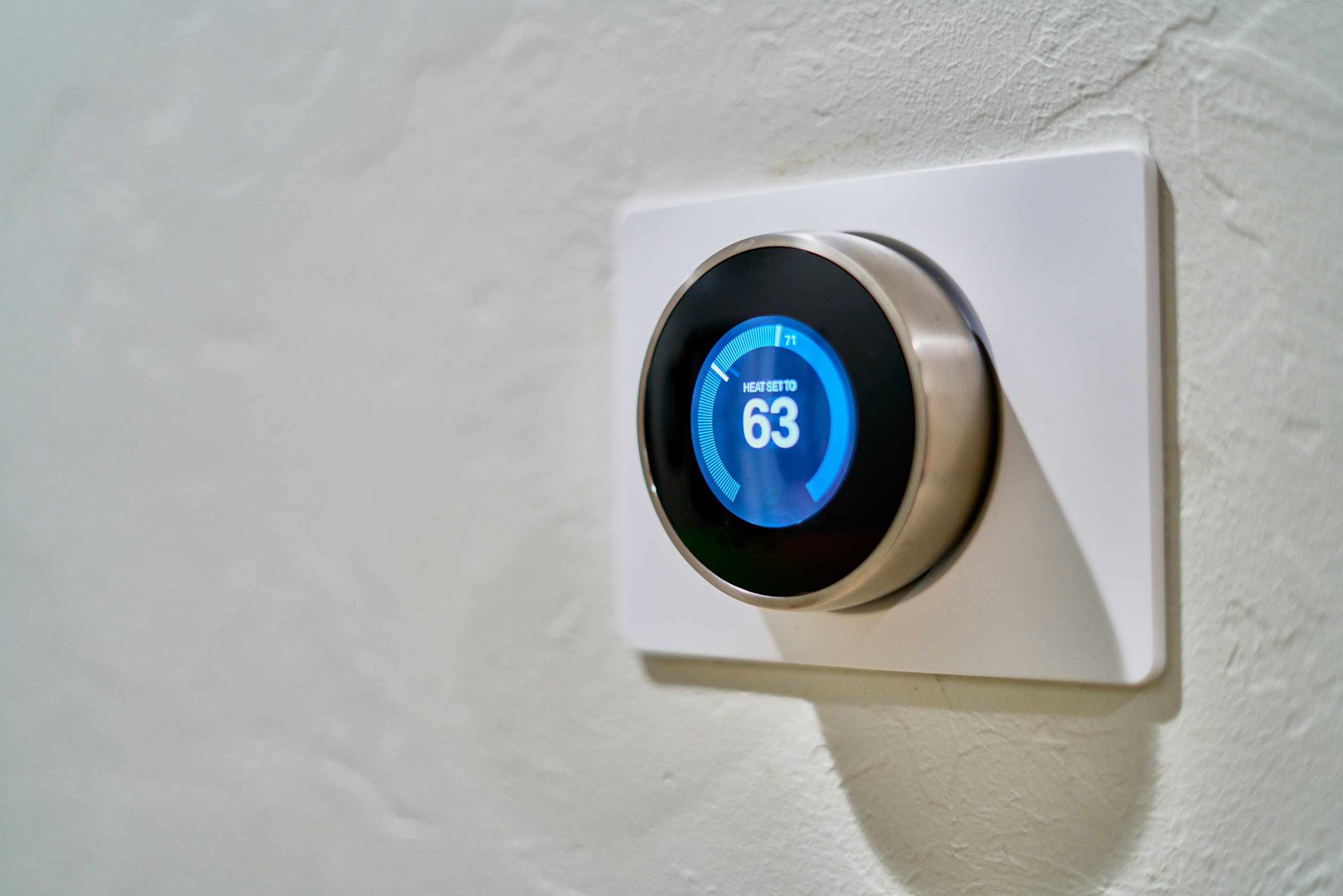Imagine a future where your fridge is not just a place to store food, but also a smart assistant that helps you manage your grocery list, tracks expiration dates, and even suggests recipes based on what you have. This may sound like a dream come true for tech-savvy individuals, but what about the environment? Are these smart fridges really as friendly to the planet as they claim to be? In this article, we will explore the potential environmental impact of smart fridges and whether they are truly a sustainable choice for our homes.

Energy Efficiency
Smart fridges are designed with energy efficiency in mind, utilizing a variety of smart sensors to optimize energy usage. These sensors are able to detect when the fridge is not in use and can automatically adjust temperature settings to conserve energy. By adapting to your usage patterns, smart fridges can significantly reduce energy consumption compared to traditional refrigerators.
Adaptive Cooling Technology
One of the key features of smart fridges is their adaptive cooling technology. These fridges are equipped with advanced algorithms that constantly monitor and adjust the cooling system based on the contents inside. This ensures that each item is kept at the optimal temperature, maximizing freshness and minimizing energy waste by avoiding overcooling.
Energy Usage Monitoring
Smart fridges provide real-time energy usage monitoring, allowing you to keep track of how much electricity your fridge is consuming. This feature not only helps you understand your energy consumption patterns but also enables you to make more informed choices to further reduce your energy usage. By being aware of your fridge’s energy consumption, you can adjust your usage habits accordingly and minimize your environmental impact.
Reduced Food Waste
Smart fridges offer a range of features that help reduce food waste. With inventory management systems, you can easily keep track of the items in your fridge and receive notifications when items are about to expire. These reminders prompt you to use the ingredients before they go bad, effectively reducing food waste.
Inventory Management
Smart fridges utilize sensors and cameras to track the items inside, allowing you to have a clear view of your fridge’s contents even when you’re not at home. This inventory management system helps you plan your meals better and avoid purchasing unnecessary items, reducing food waste and saving you money in the long run.
Expiration Reminders
Smart fridges can send you expiration reminders through mobile apps or email notifications. By alerting you when your food is nearing its expiration date, you can make a conscious effort to utilize those items before they spoil. This feature not only helps reduce food waste but also ensures that you make the most out of the groceries you buy.
Recipe Suggestions
Some smart fridges also offer recipe suggestions based on the ingredients you have in your fridge. By suggesting recipes that use up your ingredients, these fridges encourage creative cooking and help you minimize food waste. You can discover new dishes to try while making sure that no ingredients go unused and eventually end up in the trash.
Optimized Cooling
Smart fridges excel in temperature and humidity control, ensuring that your food stays fresh for longer periods. The ability to maintain consistent temperatures throughout the fridge prevents spoilage and helps preserve the quality of your food, reducing the need for frequent grocery shopping and further minimizing food waste.
Preservation of Freshness
Smart fridges employ advanced cooling technology that creates optimal storage conditions for different types of food. By precisely controlling temperature and humidity levels, these fridges can extend the freshness and shelf life of your groceries. This technology helps prevent premature spoilage and reduces the frequency at which you need to discard expired items.
Minimized Spoilage
With smart fridges, you can say goodbye to encountering forgotten, spoiled food items. The combination of adaptive cooling, inventory management, and expiration reminders allows you to stay on top of your stored food. By minimizing spoilage, smart fridges not only reduce food waste but also help you save money by optimizing the use of your groceries.

Sustainable Materials
Smart fridges are increasingly being built with sustainable materials. Manufacturers are incorporating recycled components into their designs, reducing the demand for new raw materials and minimizing environmental impact. By utilizing recycled materials, smart fridge manufacturers contribute to the circular economy and help reduce waste generated during the production process.
Recycled Components
By using recycled components, smart fridge manufacturers reduce their reliance on newly manufactured parts. This not only conserves natural resources but also minimizes the energy and emissions associated with the extraction and production of new materials. The use of recycled components is a sustainable approach that minimizes the environmental footprint of smart fridges.
Eco-Friendly Manufacturing
Many smart fridge manufacturers are adopting eco-friendly manufacturing practices. These practices focus on reducing waste, energy usage, and emissions during the production process. Through the implementation of efficient manufacturing techniques and the use of renewable energy sources, manufacturers strive to minimize the environmental impact associated with the production of smart fridges.
Long-lasting Design
Smart fridges are designed to be durable and long-lasting. By investing in high-quality materials and robust construction, these fridges are built to withstand the test of time. This approach reduces the need for frequent replacements, thereby minimizing waste generated from discarded appliances. The long lifespan of smart fridges contributes to their overall sustainability.
Smart Home Integration
Smart fridges can seamlessly integrate with other smart home devices, creating a more efficient and interconnected household. Integration allows for efficient energy management by coordinating energy usage with other appliances, optimizing overall electricity consumption. Additionally, smart fridges can collaborate with energy grids to harness renewable energy when it’s most abundant, further reducing the environmental impact.

Efficient Energy Management
Smart fridges can effectively manage energy usage by analyzing consumption patterns and adjusting settings accordingly. By syncing with other smart home devices, such as smart thermostats or solar panels, these fridges can adjust their operation to align with the household’s energy needs. This level of control and coordination helps maximize energy efficiency and minimize wasteful usage.
Collaboration with Energy Grids
Smart fridges equipped with energy management capabilities can collaborate with local energy grids. By leveraging this partnership, fridges can determine the optimal time to perform energy-intensive tasks, such as defrosting or cooling, based on the availability of renewable energy. This collaboration helps reduce reliance on non-renewable energy sources and contributes to a greener and more sustainable energy system.
Remote Monitoring and Control
With smart fridges, you can monitor and control your appliance remotely through mobile apps or voice assistants. This feature allows you to adjust settings, check inventory, or receive alerts regardless of your location. The ability to remotely manage your fridge promotes energy efficiency and minimizes waste by providing real-time information and control over your appliance.
Smart Shopping Experience
Smart fridges offer a connected shopping experience by leveraging smartphone connectivity. You can sync your fridge with your smartphone, allowing you to access your fridge’s inventory and create a grocery list on the go. This feature streamlines the shopping process, ensuring that you only purchase what you need and reducing the likelihood of buying unnecessary items that may eventually go to waste.
Smartphone Connectivity
Smart fridges provide smartphone connectivity through dedicated mobile apps. These apps allow you to view your fridge’s contents, receive expiration reminders, and even suggest recipes based on your inventory. By utilizing smartphone connectivity, smart fridges empower you to make more informed shopping decisions and reduce food waste.

Grocery List Synchronization
By synchronizing your fridge’s inventory with your smartphone, smart fridges make it easier to create and manage your grocery list. As you consume items or add new ones to your fridge, the inventory is automatically updated on your smartphone. This synchronization enables you to plan your shopping more efficiently, reducing the risk of impulse purchases and minimizing food waste.
Nutritional Information
Some smart fridges can provide nutritional information for the items stored inside, offering a comprehensive overview of the nutritional content of your groceries. With access to this information, you can make healthier choices when planning your meals, ensuring that you consume food that aligns with your dietary needs and preferences. This feature promotes conscious and sustainable consumption.
Potential E-Waste Concerns
While smart fridges offer numerous environmental benefits, it’s important to consider potential e-waste concerns. Like any electronic device, smart fridges may face technical malfunctions that render them unusable. This can lead to premature disposal and contribute to electronic waste. However, advancements in repair services and the availability of recycling programs can mitigate these concerns.
Technical Malfunctions
Smart fridges, like any other electronics, may encounter technical malfunctions during their lifespan. These malfunctions could make the fridge inoperable or compromise its smart features. In such cases, repairs may be needed, and if not feasible, the fridge could be discarded, potentially contributing to e-waste. However, manufacturers and certified repair technicians are working towards offering reliable repair services to extend the lifespan of these appliances.
Limited Lifespan
The lifespan of smart fridges is a consideration when it comes to potential e-waste. Like any appliance, smart fridges have a finite lifespan, typically ranging from 10 to 15 years. After this period, they may become obsolete or encounter issues that render them inefficient or non-functional. Responsible disposal options, such as recycling programs, can help reduce the impact of e-waste.
Recycling and Disposal Challenges
Smart fridges can be challenging to recycle or dispose of due to their size and complexity. The proper recycling and disposal of these appliances require specialized processes to ensure that hazardous materials are handled safely and valuable components are recycled. However, many regions have implemented e-waste recycling programs that aim to responsibly manage the disposal of electronic appliances, including smart fridges.
Privacy and Data Usage
While smart fridges offer convenience and efficiency, it’s crucial to consider privacy and data usage concerns. As these fridges collect data about your usage patterns and inventory, there is a need for transparency and control over how that data is collected, stored, and used.
Data Collection and Storage
Smart fridges collect data about your usage habits, such as the items you store, purchase, or consume. This data is stored either locally or in the cloud, depending on the manufacturer’s practices. It’s essential for manufacturers to clearly communicate their data collection and storage policies to ensure transparency and enable users to make informed decisions about their privacy.
Potential Security Risks
As with any connected device, smart fridges have the potential to be vulnerable to security breaches. While manufacturers implement security measures to protect user data, there is always a risk of unauthorized access or data breaches. It’s crucial for users to prioritize strong passwords, keep software up to date, and stay informed about potential security vulnerabilities to minimize these risks.
User Control and Consent
Transparency and user control are integral to addressing privacy concerns. It’s important for smart fridge manufacturers to provide users with control over their data, including the ability to opt out of certain data collection practices or choose how their data is used. By empowering users with control and ensuring their consent, manufacturers can build trust and mitigate privacy risks associated with smart fridges.
Cost Considerations
When considering the environmental impact of smart fridges, it’s important to evaluate cost factors. While smart fridges may offer long-term savings in terms of reduced energy consumption and minimized food waste, they often come with a higher initial investment and potential maintenance costs.
Higher Initial Investment
Smart fridges generally have a higher price tag compared to conventional refrigerators. The advanced technology and smart features drive up the manufacturing costs, which are often reflected in the retail price. However, it’s important to consider the long-term benefits and potential savings in energy costs and food waste reduction when evaluating the overall cost-effectiveness.
Maintenance and Repair Costs
Smart fridges may require occasional maintenance or repairs, which can incur additional costs. However, reputable manufacturers typically offer warranties and support services to assist with any issues that arise. It’s important to factor in potential maintenance and repair costs when deciding on the overall affordability and sustainability of a smart fridge.
Long-term Savings
Despite the higher initial investment and potential maintenance costs, smart fridges can offer long-term savings. With energy-efficient features, optimized cooling systems, and reduced food waste, these appliances can help lower electricity bills and grocery expenses. Over the lifespan of the appliance, these savings can offset the higher upfront costs and contribute to long-term financial benefits.
Conclusion
Smart fridges offer numerous environmental benefits, from energy efficiency and reduced food waste to sustainable materials and optimized cooling. By leveraging smart technologies, these appliances provide energy usage monitoring, inventory management, and remote control capabilities, promoting sustainable practices and reducing environmental impact. While there are potential concerns such as e-waste and privacy considerations, responsible manufacturing, maintenance, and disposal practices can mitigate these issues. With a higher initial investment but long-term savings, smart fridges present a compelling option for environmentally conscious individuals seeking to reduce their carbon footprint and lead more sustainable lifestyles.



